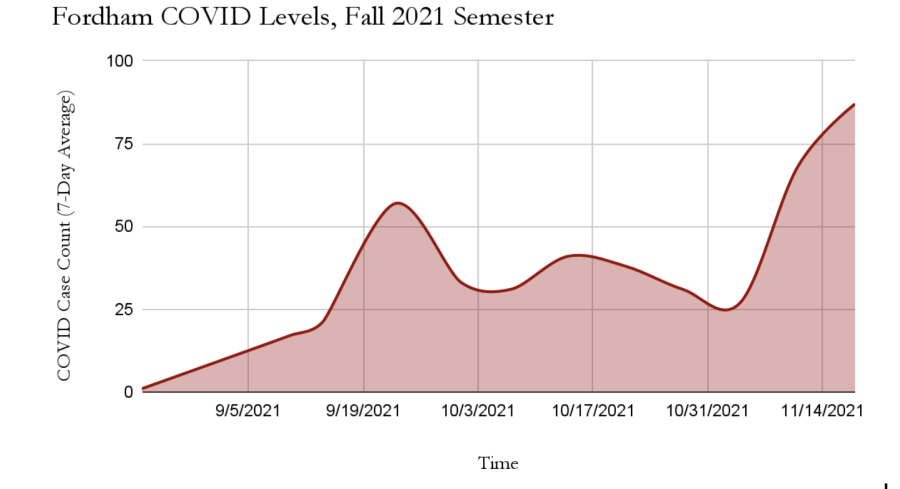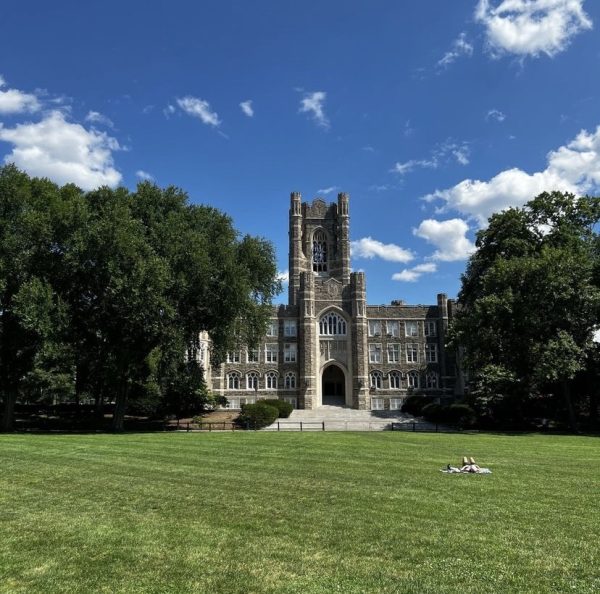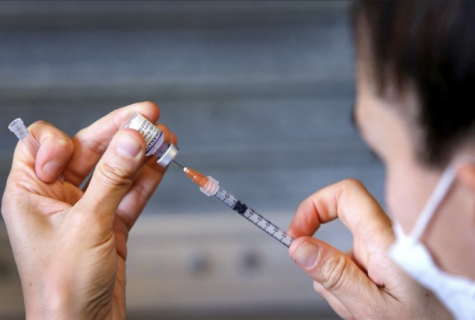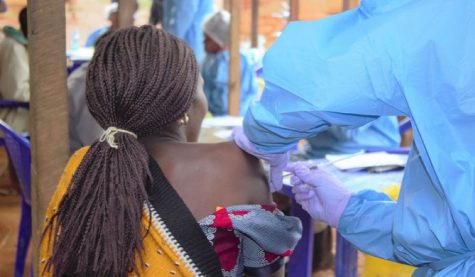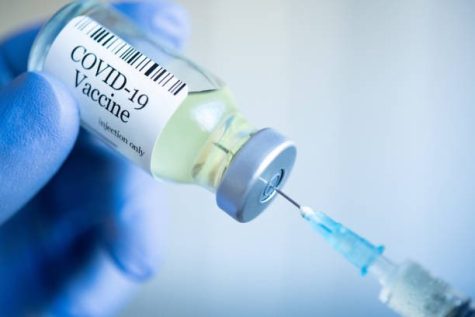Fordham Remains Unprepared for Possible COVID-19 Spikes
After conducting the 2020-2021 academic year either on Zoom or under stringent on-campus safety policies, Fordham decided to return to in-person teaching fully for the fall 2021 semester. The decision spurred flurries of both excitement and tumult, alongside mandatory vaccination policies and stripped-back safety measures. This past semester began amid the swell of cases caused by the COVID-19 delta variant. Now, three months later, the U.S. faces yet another dangerous variant. As Fordham considers the likelihood of returning to campus for the spring 2022 semester, it is important to reflect on how successful this past semester has really been.
To get this out of the way, I think Fordham has made a successful return to campus. That is, successful in terms of its response to the past 18 months’ struggles. Yet, in terms of preparation for the foreseeable pandemic-related future, the university has not done much.
It took me a while to determine what success means in the context of returning to in-person classes. At a glance, the many pros are obvious. For example, the university feels lively and populated compared to last year. Taking in-person classes is far more enjoyable socially, and far more helpful academically. Classic Fordham traditions — like the Candle Lighting Ceremony, the President’s Ball and homecoming — are no longer virtual and bring tangible festivity and vibrancy to the campus. Restaurant hours are longer and cuisine options previously closed for the majority of the pandemic are reopening. I can now bring my family members onto campus without having to bribe the Webster Avenue gate guard. Best of all, I can now get onto campus without first quarantining in Connecticut for two weeks.
The aforementioned changes have been breaths of fresh air after 18 long months. College is almost normal. There are still notable health procedures in place, of course. Masking is still mandatory in indoor areas. I still wake up to VitalCheck texts. All students, with extremely few exceptions, must be vaccinated.
In general, these changes (and constants) showcase a fairly “successful” semester. However, the aspects of in-person schooling that have worked over the last three months worked precisely because they were based on known quantities.
For example, we know the vaccinations greatly mitigate chances of serious COVID-19 illness. We know masks work to prevent virus spread. We know that these two methods, used in conjunction, will mean in-person events and classes are feasible. This has, for the most part, been true of the fall 2021 semester. The problem is that Fordham administration is not adequately preparing for unknowns. With a new and dangerous “third wave” on the horizon, the possibility that current vaccines will lose their effectiveness or that current safety measures will fall flat, is increasingly likely.
It is precisely because Fordham has leaned so fully into an in-person reopening that switching back to safer or remote learning will be so difficult.
Think about it. Though Fordham has reinstated in-person classes, it has made them completely mandatory. With remote learning out of the picture, most classes’ curriculums have gone back to normal, and would not easily accommodate online learning. At the beginning of the semester when it seemed like one in three students was sick and fearing possible COVID-19 infection, only one of my professors offered remote options — and even they claimed it was extremely difficult to manage both in-person and online students. If COVID-19 once again becomes a major threat soon, transitioning to online teaching will be just as detrimental as it was in March 2020.
In addition, the testing tent that once resided in front of O’Hare Hall is gone, replaced with a tiny trailer fit for a fraction of the school’s population. If new vaccinations are needed for a new variant, or the COVID-19 positivity rate begins to increase rapidly, this inadequate testing site will not be able to manage the uptick in activity.
As for other facets of in-person life, like food services, the current dining options are already flooded and inefficient due to poor staff arrangement and the unusually large campus population. Surely the campus wouldn’t be able to go back to the limited hours and capacity of last year.
Finally, there is little proof that anyone would listen if the campus was to institute new safety measures to combat a drastically worsening COVID-19 situation. There’s a difference between instating regulations and actually having people follow them. Of course the university has safety procedures, but they mean nothing if they aren’t enforced. The vast majority of people I see walking around McGinley, class buildings and dorms are not following those safety measures. I’m pretty sure the people sitting around me in my Medieval History class have been sick for three weeks. I see maskless professors, too.
The most hypocritical aspect of all is that Fordham — in an admittedly understandable effort to revive school spirit and tradition — hosts the very events that cause COVID-19 cases on campus. After indoor concerts, parties and all manner of big events, there are spikes in cases on campus. Each time, the school’s Five Things First newsletter sardonically reminds students to “please wear a mask in all indoor public spaces at all times.” Meanwhile, cases rise and restrictions fall by the wayside.
The past semester has been wonderful, and I recognize the effort it has taken to revitalize campus life here at Fordham. But, if the university isn’t careful, a surprise variant or uptick in cases could topple everything that has been accomplished thus far. We have to make quality remote learning a viable option, expand on-campus testing and vaccination access and stringently enforce safety measures at indoor gatherings. To truly return to in-person schooling, Fordham must prevent future problems as much as it addresses past ones.
Hanif Amanullah, FCRH ’24, is an international studies major from Austin, TX.
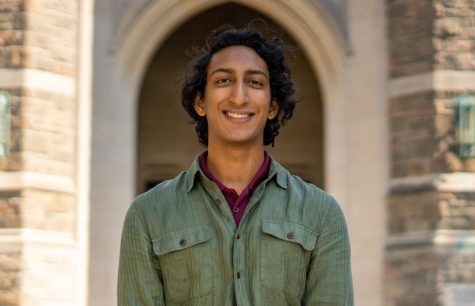
Hanif Amanullah is a junior from Austin, Tex., majoring in international studies, whose passion for news writing and multimedia led him to the Ram. Hanif...





































































































































































































